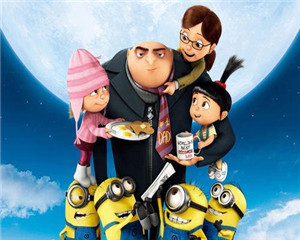聲音簡(jiǎn)介:最近在家宅著的你是不是有點(diǎn)悶?zāi)兀拷裉旌湍銈兎窒硪皇缀芟茨X、聽(tīng)了就很開(kāi)心的歌,F(xiàn)itz & the Tantrums樂(lè)隊(duì)2016年發(fā)布的HandClap, 也是《神偷奶爸3》的電影宣傳曲。
【節(jié)目全文可關(guān)注微信公眾號(hào)Zoey八點(diǎn)英語(yǔ) 回復(fù) handclap 獲取】
【英文參考】
People come up and sing it to me. It's kind of crazy. It's sort of a party anthem. I guess that's where we're coming from on this record. We just want to make people feel good. There's a lot of heavy vibes out there — in the world and the country, for sure. Just to come out and say, "We want to make your hands clap" may be a low-brow kind of thing, but that's what people need. They just need to have fun, and that's where we're coming from.
Babies generally start clapping before they are one year old, but without encouragement from parents, this tends to be a behavior that isn't often used.
And it certainly is not to show appreciation.
The baby may simply discovers it can make a noise with its hands and then becomes fascinated by this.

Actually, Greek audiences stamped their feet rather than clapping their hands to applaud.
One theory is that the tradition of clapping dates back to 1473 amid an outbreak of cholera. Slapping your hands together was a signal to those around that you were infected. Eventually it became an expression of applause.
Ancient Greek audiences expressed their emotions very boldly. They would even throw stones and food at performers they didn't like.
In contrast, happy or enthusiastic crowds often showed their feelings by shouting, stamping their feet and generally doing anything that made as much noise as possible.
He says, "There's a moment in the song that speaks to just an innate sense of loneliness sometimes, and you wanna have that connection, you wanna have that love in your life."
這首歌就是很簡(jiǎn)單,希望你用最原始最簡(jiǎn)單的方式,表達(dá)歡樂(lè),喊出欲望。
希望你聽(tīng)完歌也可以更開(kāi)心~
更多精彩內(nèi)容,請(qǐng)關(guān)注微信公眾號(hào):Zoey八點(diǎn)英語(yǔ)











